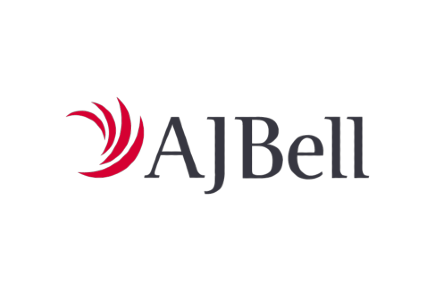There has been plenty of talk recently about the cost of living going up – with the energy price cap increasing and national insurance set to rise.
However, there is also the added factor that at the end of 2021, the Bank of England agreed on increasing the interest base rate from its current record low of 0.10% up to 0.25%, and now up to 4.0% in February 2023.
But what does that mean for you? How will it affect you – and more importantly for savers out there, will interest rates rise on your ISAs?
Read more: Will interest rates rise?
Best rate ISA providers for June 2025
Below is my list of the best ISA rates from UK providers you might consider to make the most from your ISA savings.
Top ISA rate providers for 2025
InvestEngine
- Managed portfolios, currently yield 2.3%, 4.1% or 5.2% a year
- Transfer existing ISAs for free
- Zero ISA account fees
With investment, your capital is at risk. This could mean the value of your investments goes down as well as up.
Interactive Investor
- The number one choice for UK Investors
- Open an ii ISA for just £9.99 per month
- Choose from more than 40,000 UK and global stocks
New customers only. Terms apply. Capital at risk.
Important information - investment value can go up or down and you could get back less than you invest. If you're in any doubt about the suitability of a Stocks & Shares ISA, you should seek independent financial advice. The tax treatment of this product depends on your individual circumstances and may change in future. If you are uncertain about the tax treatment of the product you should contact HMRC or seek independent tax advice.
AJ Bell
- 0.25% annual custody charge – buy and sell for as little as £1.50
- Invest with a lump sum or smaller amounts with regular investing
- Multi-award winning ISA
Remember that investments go up and down in value, and you could lose money as well as make it. How you’re taxed will depend on your circumstances, and the rules can change.
Recently, a spike in inflation has bor down pressure on the Bank’s Monetary Policy Committee (MPC) to increase interest rates.
However, there are both positives and negatives attached to this – depending on whether you are a borrower or a saver. The interest rate rise will no doubt slow then the current rise in inflation that we are experiencing, but others express concern that this will only add to the ever-increasing cost of living and the cost of debt will put even more pressure on lower-income households that are already struggling.
In this article, we will look at how this interest rates rise might not just affect people negatively, but whether this might also be passed onto ISA interest rates and whether this makes ISAs a better option for investors than it has been before.
The Bank of England base rate
Before we understand how our ISA interest rates might be affected, it is important to understand exactly what the Bank of England Base Rate is – and how it might affect ISAs in 2022.
Up until the end of 2021, the base rate was held at an all-time low of 0.10%. This record low had been in place steadily between March 2020 and December 2022 – following two cuts that were instigated at the onset of the pandemic. However, in December 2021, the Bank of England voted to increase this to 0.25%.
The Bank of England base rate is important to understand because, ultimately, this is what sets the level of interest that commercial banks charge us on financial products such as loans and mortgage deals. It is, however, often represented in saving products, which can give us more for our money as a saver.
How the Bank of England base rate is set
The interest rate decisions in the UK are set and announced approximately every six weeks (eight times per annum) by the Bank of England’s monetary policy committee (MPC). A number of meetings take place, with the nine current members of the MPC, led by Andrew Bailey, the governor, debating and voting on which monetary policy actions they should be taking.
The outcome of these meetings and the meeting minutes will then be published on a Thursday at noon. These are then examined by experts to see what clues are there to suggest either interest rate rises or cuts that might be on the cards.
The rate of inflation in the UK increased from 4.2% up to 5.1% in November 2021. This piled the pressure onto the Bank of England to increase the base rate in an effort to slow down inflation rate rises.
As a result, on the 16th December 2021, the committee voted to increase interest rate from 0.10% to 0.25%. The date of the next meeting to review the interest rate is due to be held on 3rd February 2022 – and then again on March 17th 2022.
What this means for you
Every single decision the committee makes will affect you and your financial circumstances- including your ISA savings products.
Dropping interest rates
If in February, the committee chooses to drop the interest rates again, then this will mean that your ISAs will not see any interest rise that might have been reflected eventually in the recently increased rates. However, on the other hand, it will make borrowing money cheaper for you – which, in turn, encourages companies and individuals to borrow and spend more.
However, this has the knock-on effect that it leads to an increased rate of inflation – and rising inflation means that services and goods start becoming more expensive – so it is good news for borrowers, but bad news for ISAs.
Increased interest rates
An increased interest is much better news for the saver rather than the borrower – because the Bank of England normally passes this on to the saver – so they get more for saving and it becomes more expensive for borrowers.
This generally leads to a fall in the rate of inflation – which means your buying power should remain steady. So, this might be the best time to think about getting an ISA – but possibly not the best time to start looking for better mortgage rates.
Interest rates rises in 2022
What can ISA holders expect from the rest of the year? Already the bank of England surprised economists by putting the base rate up to 0.25% at the close of 2021 – but will this increase continue into the new year?
Economists are already expressing some concern that if the interest rates continue to increase whilst the country is under new threats from new variants, then an already fragile economy could be damaged even more.
As such, the Bank of England is eager to avoid increasing rates of inflation. However, the Bank’s chief economist has already warned that increasing interest rates might be necessary to help slow down inflation. As such, there are some experts who predict that the base rate might even rise to as much as 1.25% by the end of the year – possibly excellent news for ISAs.
Also consider: Will interest and savings rates rise in 2022?
How increased interest rates affect you
So, if this does happen, how will it affect you?
Better rates for savers
Looking at the positive side, the good news is that it could ultimately mean that, unless you have a fixed-rate account, there will be better savings deals on the market, especially for Cash ISAs holders. This means that if you have money in your savings, it could be earning you even more.
But will this happen? The hope amongst money experts is that now the base rate has increased from its all-time low, then most of the banks will pass this on to their savers with higher interest rates.
However, this isn’t a given – and it isn’t something that you can assume will happen automatically for everyone. Some financial institutions will no doubt be more eager to pass on the increase to customers than others, so anyone looking to open an ISA will definitely need to shop around for the best offers.
Right now, it’s still difficult to find a high interest savings account ISA – although you have a better chance to earn more interest if you don’t need easy access accounts and are prepared to lock your money away for at least five years, with no instant access. It’s always best to look out for the best deals possible.
Passing on the benefits?
Despite the fact that interest rates have been put up at the end of the last year, this has yet been passed on… and this is proving to be a disappointment. Currently, even when they do get a taste of the increase, most mainstream cash ISAs and Instant Access savings accounts aren’t passing on the full benefits – and so would only actually increase to 0.16% – not 0.25%, which would mean that you would still only earn 16p for every £100 in your savings.
What experts are fighting for
One of the only positives for the common person if the interest rates rise, is increased earnings from their ISAs – and if this isn’t the case, then it seems unjust. As such, money experts are fighting for savers:
- To pass on the full 0.15% increase in rates on to all savers.
- To backdate this extra interest to December the 16th – when the interest rate initially rose.
- To keep savers informed of changes in writing.
- For financial institutions to inform their savers of better deals that are available to them.
It seems, so far, that banks are refusing this – and many are putting their profits above treating their savers with respect – not playing fair. This, however, is not fulfilling the duty that is required of them by the City regulator – the Financial Conduct Authority.
The Financial Conduct Authority (FCA) has, in the past, attempted to help savers achieve better interest rates for their savings but so far they haven’t been able to impact what is currently happening.
After the rate rise, questions were asked of all of the mainstream banks as to whether or not they had any future intentions of increasing the savings rates on any account that hasn’t been linked to the base rate. Unfortunately, up until recently, none of the high street banks and financial institutions could confirm that this was on the cards in the near future. Some of them only put forward the possibility that if there was to be any increase in interest rates on savings accounts and ISAs then this wouldn’t happen until at least February 2022 – at least six weeks after the increase was initially announced.
However, this has not gone down well with many – especially given the fact that the savings giant, NS&I are putting up their interest rates on Direct ISA by 0.25 percentage points and Direct Saver and Income Bonds up 0.2 percentage points.
The lack of action by banks has been noted by all – and is annoying both experts and savers right now.
Negative effects of the interest rate rise
Although there may be some hope for ISA savers in the future, it’s not necessarily going to benefit all, and some may be negatively affected, especially if the increased cost of living is already affecting their ability to afford their monthly mortgage payments.
Increased cost of borrowing
If you aren’t on a fixed-rate mortgage, then many will notice the rise in their mortgage repayments. Mortgage costs are certainly going to be on the up.
If you happen to be currently in a variable rate mortgage deal then your mortgage rate of interest will increase in line with the Bank of England’s base rate rise. However, the good news is that if you are on a fixed rate deal, then until your term is over, you won’t be affected by the rise. So, if you are on the lookout for a new mortgage or remortgage, then you might be best to look for a fixed-rate deal for the next few years at least.
So, right now, depending on your financial situation, the change in interest right may have a big effect – or no effect at all.
Interest rates – The future
What will happen to the interest rates in the future is impossible to know – unless you are a fortune-teller. However, most experts think that if there is a rise in interest rates then it will be slow. Most believe that in the spring, the interest rate will increase again, from 0.25% to 0.50%. Some think it’s possible that by the end of 2022, it could be as high as 1.25%.
The Bank of England has also suggested in its quarterly Monetary Report that the cost of borrowing is set to increase in the upcoming months.
Negative interest rates
Although this seems increasingly unlikely, especially anytime in the near future, a negative interest rate would be unprecedented in the UK and would have a big impact both on ISA holders and borrowers.
Theoretically, this could mean that a saver could actually be charged to have their money in a bank account, meanwhile, a mortgage customer would be paid interest by their lender.
However, in practice, the chances of this happening are minuscule – as banks and building societies need savers to get money and fund their mortgages.
Should you open an ISA in 2022?
Well, right now, rates of inflation are having a big impact on savings deposits – and figures that have been released suggest that inflation would rise even further if the rates of interest aren’t increased even more. December 2021 saw the highest rate of inflation since 1992.
If this continues to be the case – and interest rates rise no further and the rates of inflation stay steady, then inflation will far outweigh any return offered in Cash ISAs or cash savings accounts – and reduce any value of your deposits.
Although the base rate was increased in December, most providers have chosen to not yet pass this on to savings accounts and cash ISAs. However, this could be a good time to think about opening up an investment – stocks and shares ISA. This could certainly be worth taking into account, given that this is a tax-free savings option on any returns generated up to £20,000. Moreover, because the interest rate rise hasn’t been passed on to cash ISAs yet, these will continue to outperform cash savings over the long term. Although there is more of a risk attached – as they are affected by the rise and fall of the stock markets as opposed to the Bank of England base rate.
So, when will ISAs rates go up? The answer is… when the banks start playing fair and passing on the interest rate rise to their customers. This could be February – it could be later. Hopefully, eventually, their heads will be forced and at least some of the increase will be passed on.



